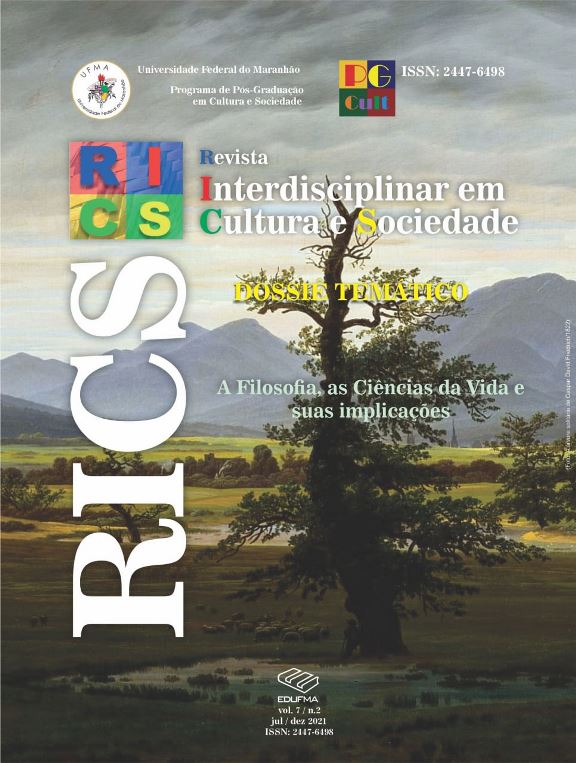O desamparo da ciência na transição para sociedades sustentáveis
DOI:
https://doi.org/10.18764/2447-6498.v7n2p1-13Parole chiave:
Afetos. Antropoceno. Contingência. Multiespécie. Sustentabilidade.Abstract
Esse trabalho se constrói diante a conjuntura da virada ontológica das ciências humanas e ambientais. Período em que as crises da sociedade contemporânea exigem da ciência o reconhecimento da potência agentiva de humanos e não humanos na transição para sociedades sustentáveis. Assim, reconhecendo a necessidade da corporificação política para a transição, o destaque e desafio do trabalho é buscar novos caminhos para a corporificação política da ciência através do desamparo como afeto político central, aproximando o campo psicanalítico do reconhecimento das dimensões multiespécie da antropologia contemporânea. Para isso me apoio principalmente nos trabalhos de Vladimir Safatle, Sigmund Freud e Anna Tsing.
Palavras-chave: Afetos. Antropoceno. Contingência. Multiespécie. Sustentabilidade.
The science helplessness in sustainable societies transition
Abstract
This work is constructed in the conjuncture of the ontological turn of human and environmental sciences. A period when the crisis of contemporary society requires science to recognize the active potential of humans and non-humans in the face of the transition to sustainable societies. Thus, recognizing the need for political embodiment in the transition, the highlight, and challenge of the work is to seek new paths for the political embodiment of science through helplessness as a central political affection, bringing the psychoanalytic field closer to the recognition of the multispecies dimensions of contemporary anthropology. For that, I supported the works by Vladimir Safatle, Sigmund Freud, and Anna Tsing.
Keywords: Affect. Anthropocene. Contingency. Multispecies. Sustainability.
Downloads
Downloads
Pubblicato
Come citare
Fascicolo
Sezione
Licenza
Direitos autorais da Revista Interdisciplinar em Cultura e Sociedade
Este obra está licenciado com uma Licença Creative Commons Atribuição 4.0 Internacional.


















